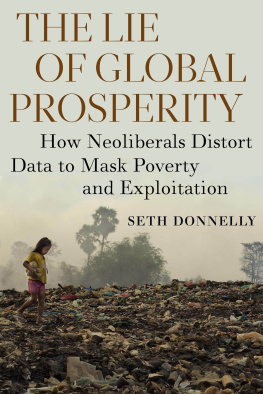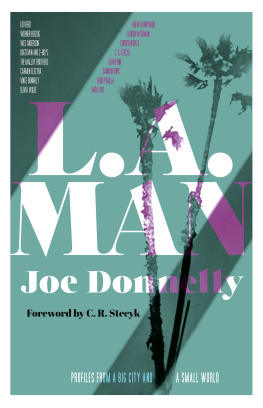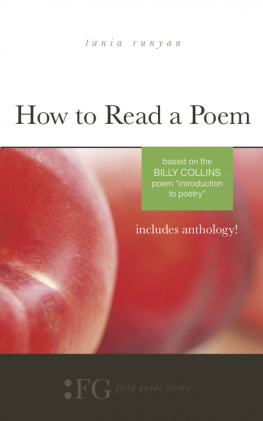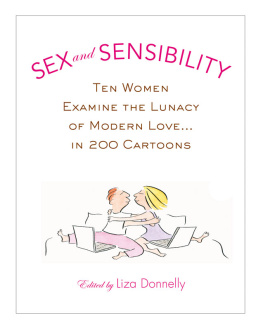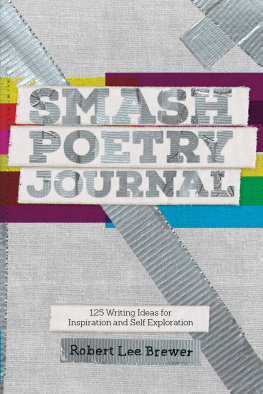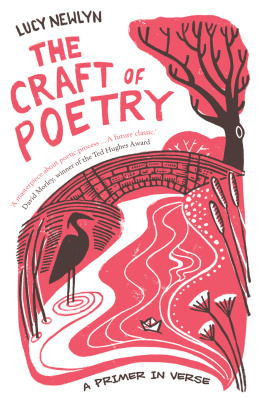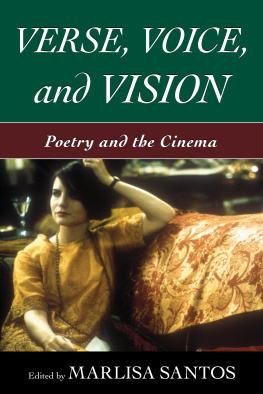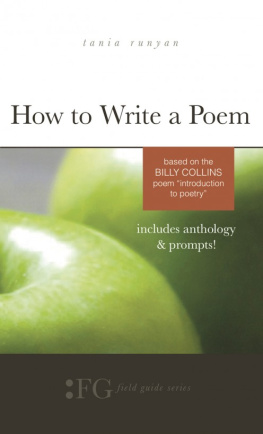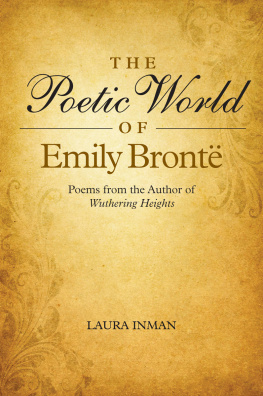TWENTY-SEVEN PROPS FOR
A PRODUCTION OF EINE LEBENSZEIT
TWENTY-SEVEN PROPS
FOR A PRODUCTION OF
EINE LEBENSZEIT
TIMOTHY DONNELLY

Copyright 2003 by Timothy Donnelly
Foreword copyright 2003 by Richard Howard
All rights reserved. No part of this book may be reproduced in any form or by any electronic or mechanical means, including information storage and retrieval systems, without permission in writing from the publisher, except by a reviewer, who may quote brief passages in a review. Any members of educational institutions wishing to photocopy part or all of the work for classroom use, or publishers who would like to obtain permission to include the work in an anthology, should send their inquiries to Grove/Atlantic, Inc., 841 Broadway, New York, NY 10003.
Grateful acknowledgment is made to the editors of the magazines in which versions of these poems first appeared: American Letters & Commentary: An Autocracy on the Lounge; The Ghost of a Flea; Conduit: An Acting Appendix; Birdsong from Inside the Egg; Denver Quarterly: Ease; Her Palm, Her Apotheosis; Monastic; Vera on Atmosphere; Fence: From a Further Meaning Faded; Gulf Coast: Relief in Gestures Artificial and Oblique; Jacket: Anything to Fill In the Long Silences; Dark Night on the Inside of a Rock; LIT: Known Minutiae; Nauseous House; Now Culture: Sonata ex Machina; The Paris Review: Bangor; His Long Imprisond Thought; The Truer; Ploughshares: Maintenance; Marblehead; Scarecrow in Magnolia; Self Exhibited As a Wasting Phoenix; Quarterly West: Isnt It Romantic?; Slope: Through a Darkness, an Intelligence; Pansies Under Monkshood: A Folly; Der Nachtschwrmer; For a Missing Face; TriQuarterly: Purgatory Chasm; Verse: An Inflorescence; Anything to Fill In the Long Silences; Twenty-seven Props for a Production of Eine Lebenszeit; Volt: Delphinium; The Driver of the Car Is Unconscious; Western Humanities Review: Accidental Species.
The author gratefully acknowledges the support of the New York State Writers Institute and its grant of a Master Writer Fellowship during the summer of 2001.
Published simultaneously in Canada
Printed in the United States of America
Library of Congress Cataloging-in-Publication Data
Donnelly, Timothy.
Twenty-seven props for a production of Eine Lebenszeit / Timothy Donnelly.
p. cm. (Grove Press poetry series)
eBook ISBN-13: 978-0-8021-9677-4
I. Title: 27 props for a production of Eine Lebenszeit. II. Title.
PS3604.O636 T85 2003
811.6dc21 2002033862
Grove Press
841 Broadway
New York, NY 10003
For my mother and my father
CONTENTS
FOREWORD
First things first: readers necessarily unfamiliar with the new poets work will gape at the odd title, which means no more than a plethora of supports for the performance of an imaginary playthe allegorical rendering of an entire life (Eine Lebenszeit = a lifetime). Fair enough, if winsomely arbitraryany other title in the collection is just as likely, as likeable. My own choice takes after another poem, Accidental Species, which embodies just as many clues to the name and nature of the remarkable poetry Donnelly writes.
This poetry is as vigorous, as fresh, and as authoritative as any new work I have seen since Ashberys third book. There is a filiation between Donnellys work and Ashberys, but it is a matter to be treated briskly, without too much heavy breathing (I speak for myself hereDonnellys respiration is ever light, ever lively): Ashbery has come to be known for poetry that refuses to emerge from its rhetoric, its various registers of diction, and its apparent lack of immediately identifiable subject-matter.
Donnellys too is a poetry of words rather than of stories or characters, but where Ashbery treats his nomenclatures with a certain dryness, Donnelly is exuberant. He is a logomaniac, and every poem coils about its syntax like a sleek python of reticulated verbality:
I was a plaything to the climate, the breezes
lifted, swept me vast and plastic as they
wished, all eyes to my assignment from
the power in whose eyes all palaces, pyramids,
and the worms that build them are alike
contemptible; I was a humble ship set
hazarding from rock to rock, and on each
I struck a wreck, and all that changes you, confuses
parts for wholes, so that you become
the very swarm you would dismiss but cant
because its you
This is, I submit, the poet on himself and his venture, and a good example of Donnellys Way: it is not quite narrative, and not quite lyricpermit me to call it epic meditation, a poetry of engagement with the various levels of Being that can be summoned up by words from the different registers that the poet commands or, more likely, command him.
I believe this work to be as handsomely delivered as any to be found in new American verseindeed, the differential point with regard to Ashbery is that Donnelly is always sensitive to the line, the stanza; he never ignores the responsibility of form. Hence the elegance of even his most extended pieces, carefully disposed within the demands of the various rhetorics Donnelly has assimilated:
I am by nature
made a mimicker, by miracle adept at taking in and flinging back
This young poet clearly identifies his agon when he asks himself: Will we be the masters of the art, or its victim?
The entire book is the answer, but an answer always in dispute. I am perfectly aware that the first (and probably last) question that will be asked is Whats it all aboutwhats he saying? The poet too is conscious ofand agonized bythese interrogations, as when he has his Miss Singleton, author of a New Deportment Manual, ask:
Why not use appropriately varied tones of voice
so that each individual might best be able
to harvest the pleasure of your company?
and he eagerly and immediately answers her:
I do. Or I would. That is I will. I feel
relieved and anxious, as when discovering
the source of lifes mysterious scratching
is a colony of ants beneath the wallpaper.
Miss Singleton, call a doctor. Theres disease
about the mouth. It is ashamed of itself.
It makes noises that dont ever belong
And this wonderful poem, a sort of ars poetica that is also a bit lovers complaint, concludes with the heartbreaking line: The terror I inspired I am made to feel.
Perhaps that is the ultimate point to be made about Donnellyhe has the true resonance of heartbreak, the lacrimae rerum note in all his extravagant address, his goofy transformations (I would like being a bird, just not a raptor, except perhaps / an owl), his intricately detailed nature-studies:
Windowed, he will watch an autumns fancy branchwork, the crocus spitting gold-dust stigma-tassel (saffron), but mourn the patch of purple browning by the brick, the offal-air of mold and loveless decomposing. Chiller nights approach.
Note the careful rhyming, which helps us into and through the big pieces, the music sounding where the meanings appear to rescind. I must not quote more; instead, I urge a reading of this brilliant (and unabrogable) book. It demands to be read as poetrynot as social studies, psychiatry, or even wardrobe boasting. It will be a pleasure as well as a privilege for readers attentive to contemporary poetry, and I am quite convinced that the poet has such readers in mind with the final words of one of his finest poems, The Spleens Own Music, when he says:
Next page



